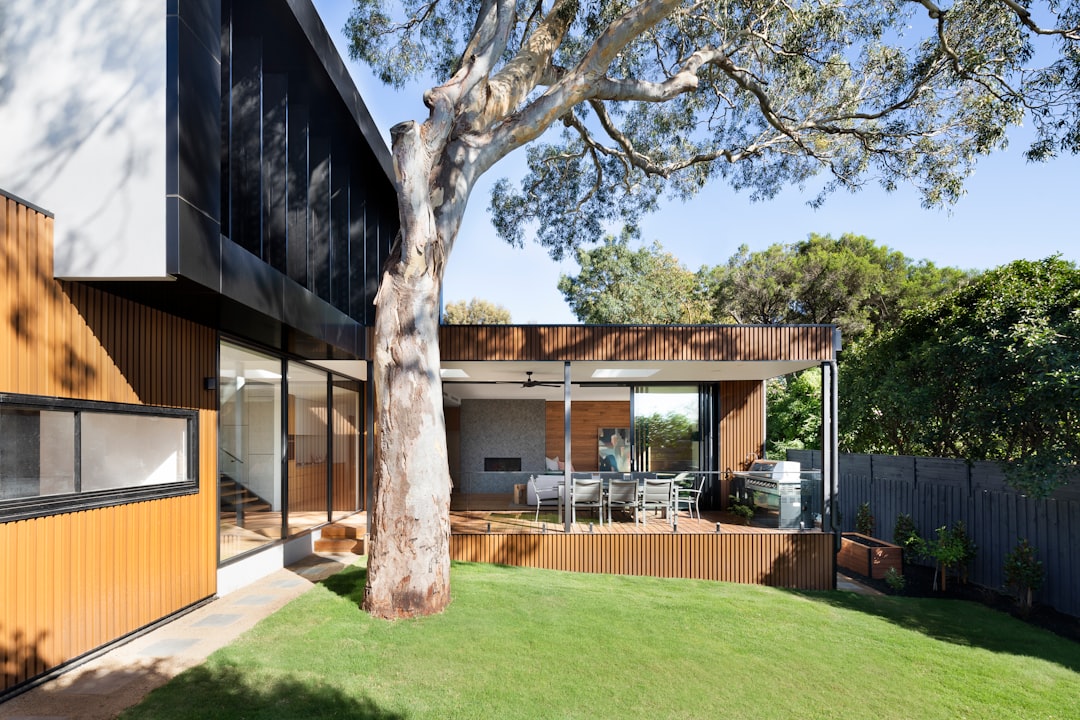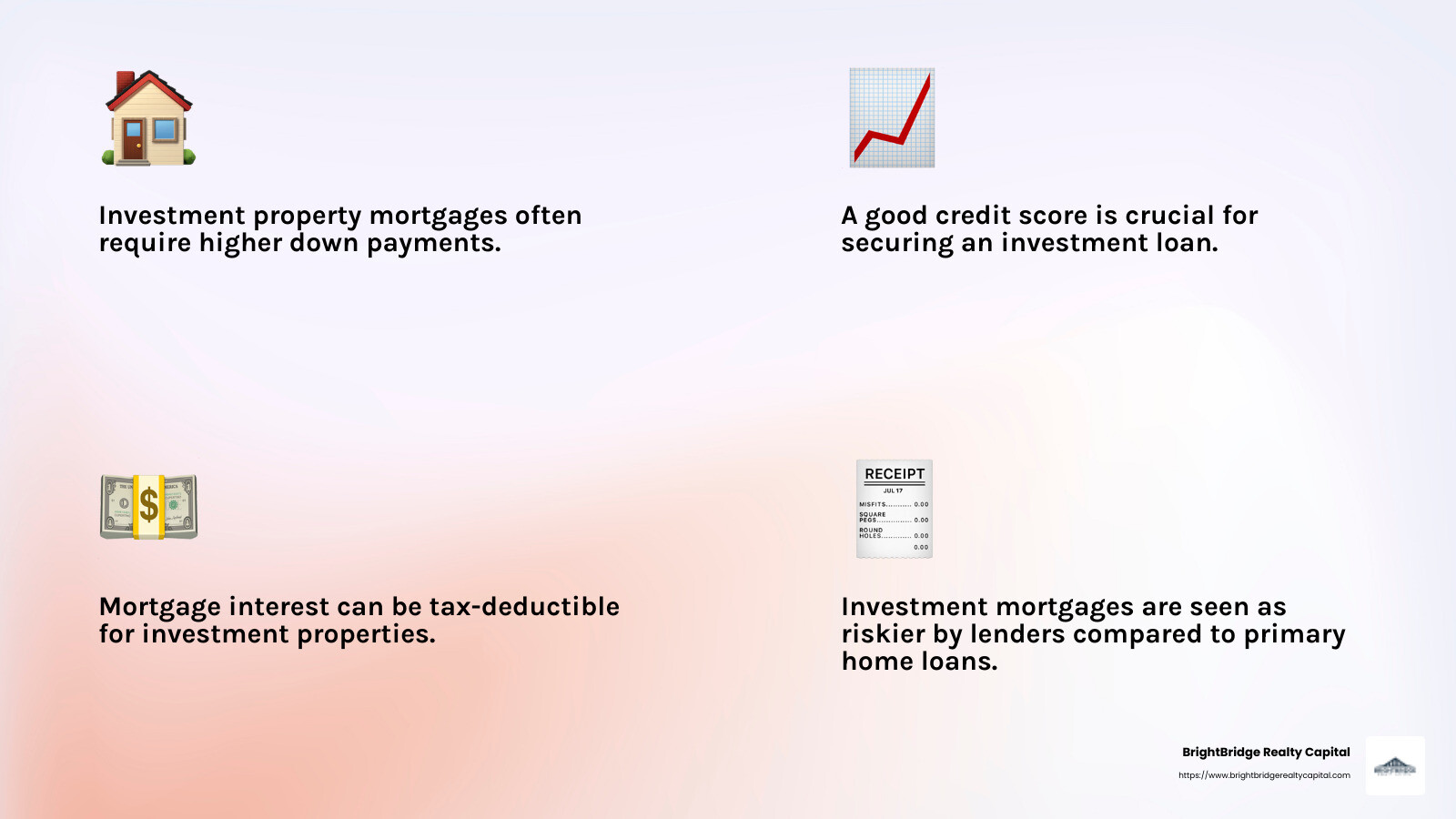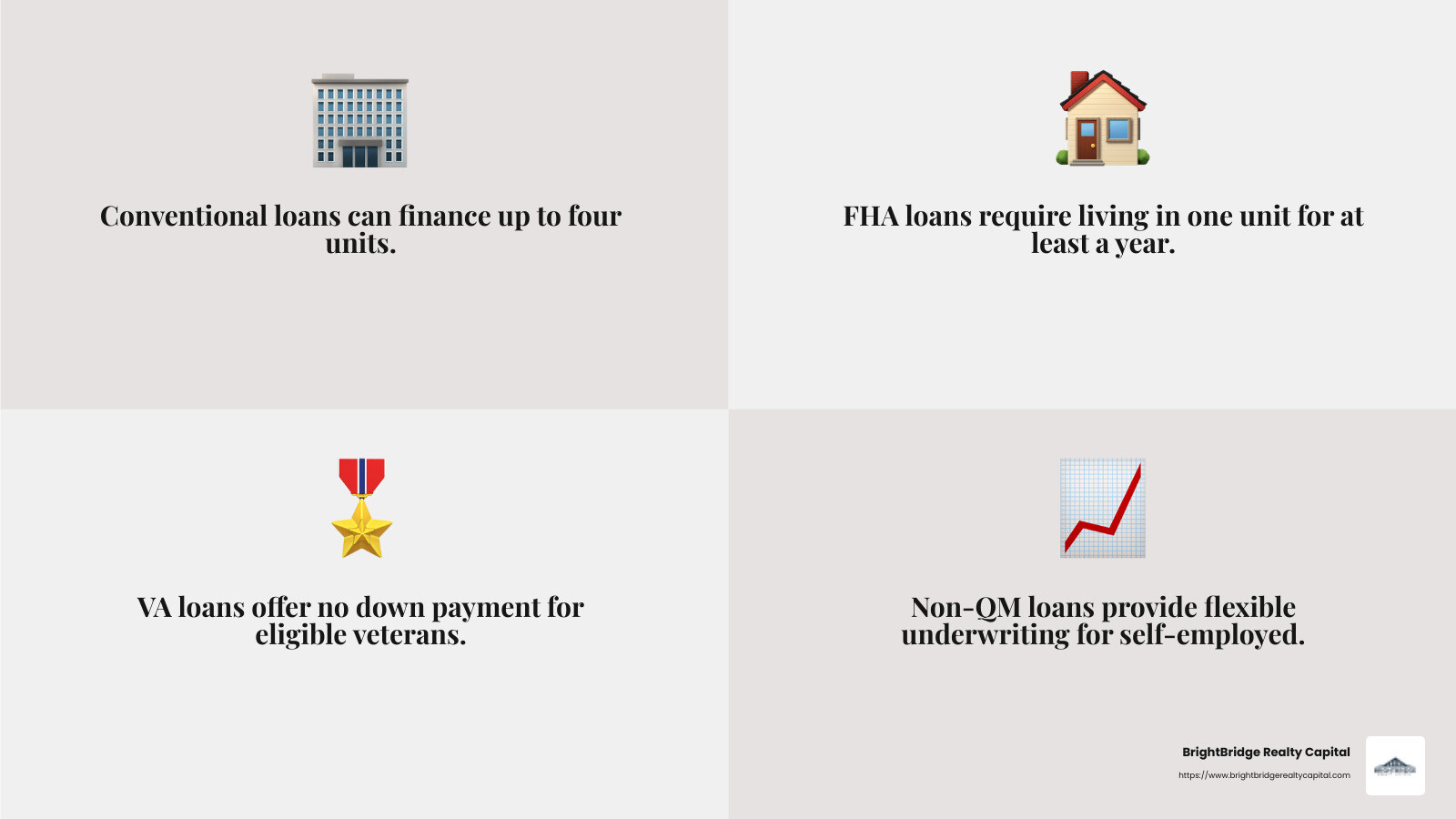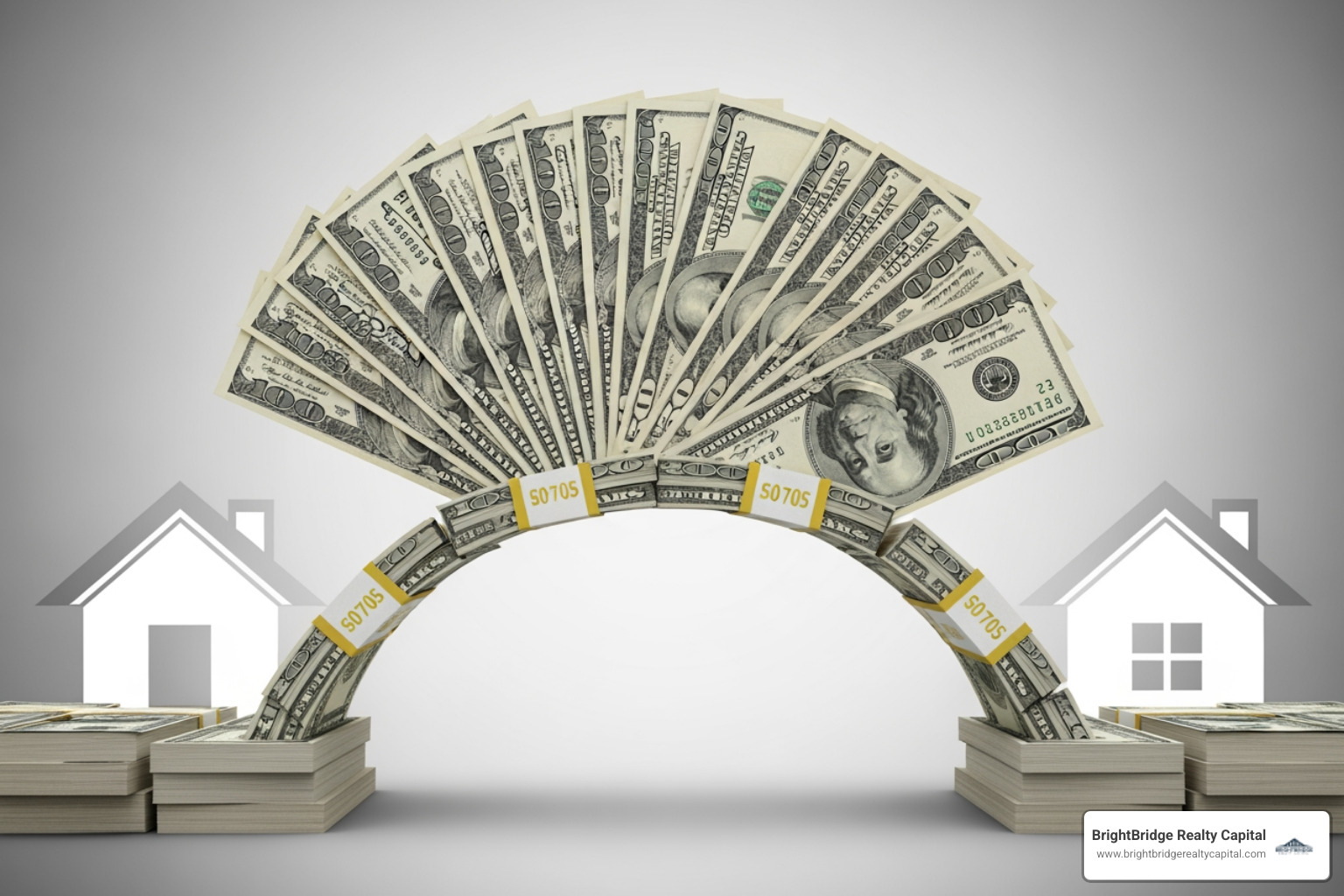Investment Mortgages: Your Guide to Smart Real Estate Financing

Investment mortgage is a powerful tool for real estate investors looking to expand their portfolio and boost their income. But what exactly is it, and why is it crucial for your investment strategy? Here's a quick answer:
- What it is: A loan used to purchase properties intended for rental or resale for profit.
- Benefits: Enables purchasing high-value assets with less upfront cash, offers potential tax benefits, and can improve portfolio diversification.
- Challenges: Typically involves higher interest rates and stricter loan criteria compared to primary residence loans.
- Who it's for: Ideal for investors focusing on rental properties or fix-and-flip projects.
Real estate investing can be an exciting yet complex venture, and understanding investment mortgages is key to success. Whether you're planning to generate steady rental income or aim to profit from property appreciation, choosing the right financing is crucial. Investment properties, including residential and commercial real estate, offer diverse opportunities but come with unique financial considerations.
Investors need to be savvy about loan requirements, rates, and terms to maximize returns on investment. As you dive into real estate financing, you'll find that the right investment mortgage can make all the difference in seizing lucrative opportunities efficiently and effectively.

Understanding Investment Mortgages
Investment mortgages are essential for anyone looking to dive into real estate investing. These specialized loans are designed for purchasing properties that generate income, either through renting or selling at a profit. Here’s what you need to know:
Income Property Mortgage
An income property mortgage is a type of loan specifically for properties that you intend to rent out. These properties can be residential or commercial. The goal? To earn income, whether through monthly rent or eventual resale.
Higher Down Payments and Credit Requirements: Compared to regular home loans, income property mortgages often require larger down payments and higher credit scores. This is because lenders view them as riskier investments.
Potential Tax Benefits: You might be able to deduct expenses like mortgage interest and property taxes, which can lower your taxable income.

Financing Options
When it comes to financing options, real estate investors have several paths to choose from:
Conventional Loans: These are the most common and typically require a down payment of at least 15% for a single-unit property. They are best for investors with strong credit and financial stability.
Home Equity Loans and HELOCs: If you already own property, you can tap into your home equity to finance new investments. This can be a smart move if you want to avoid refinancing your primary mortgage.
Cash-Out Refinance: This involves taking a new, larger mortgage on an existing property and using the extra cash to invest. It comes with a single monthly payment, but you’ll need to compare rates to ensure it’s cost-effective.
Investment Property Loans
Investment property loans are custom for those aiming to build wealth through real estate. They cater to different types of investors, from those buying multi-unit residential properties to commercial real estate ventures.
Flexible Terms: Some lenders, like BrightBridge Realty Capital, offer flexible terms and no income checks, making it easier for investors to qualify.
Diverse Property Types: Whether it's a single-family home or a multi-unit building, these loans can be adjusted to fit various investment strategies.
Understanding the nuances of investment mortgages can significantly impact your success in real estate. By choosing the right financing option, you can maximize returns and minimize risks, turning your investment dreams into reality.
Types of Investment Mortgages
When you're ready to invest in real estate, choosing the right type of investment mortgage is crucial. Here’s a breakdown of the main options:
Conventional Loans
Conventional loans are the most popular choice for real estate investors. These loans are not backed by the government, meaning lenders may have stricter requirements. You’ll often need a down payment of 15% to 25% and a good credit score. These loans are suitable for investors with stable finances and a solid credit history.
- Pros: Widely available, can finance up to four units, and have no occupancy requirements.
- Cons: Higher interest rates compared to primary residence loans and stricter qualifying criteria.
FHA Loans
The Federal Housing Administration (FHA) loans are government-backed. They’re great for new investors who plan to live in one of the units of a multi-family property. You can finance up to four units with a lower down payment.
- Pros: Lower down payments (as low as 3.5%) and more lenient credit score requirements.
- Cons: You must live in one of the units for at least a year.
VA Loans
Offered through the U.S. Department of Veterans Affairs, VA loans are for eligible military personnel. They allow you to buy a property with up to seven units with no down payment, provided you live in one of them.
- Pros: No down payment required, competitive interest rates, and no private mortgage insurance (PMI).
- Cons: Limited to eligible service members and veterans.
Non-QM Loans
Non-QM (Non-Qualified Mortgage) loans cater to investors who might not meet the strict criteria of conventional loans. These include self-employed individuals or those with irregular income.
- Pros: Flexible underwriting and documentation requirements.
- Cons: Tend to have higher interest rates and larger down payment requirements.
Owner Financing
In some cases, the seller of a property might offer owner financing, acting as the lender themselves. This can be a flexible option if you have trouble securing traditional financing.
- Pros: Flexible terms and potentially easier qualification.
- Cons: Often includes a balloon payment, requiring the full balance to be paid in a short period.

When selecting an investment mortgage, consider your financial situation, investment goals, and the type of property you want to buy. Each loan type has its own benefits and drawbacks, so weigh your options carefully to find the best fit for your real estate investment strategy.
Key Considerations for Investment Mortgages
When diving into real estate investment, understanding the key factors that influence your investment mortgage is essential. Here are the main things to consider:
Credit Score
Your credit score is a big deal when applying for an investment mortgage. Most lenders require a minimum score of 620, but if you want better rates, aim for 740 or higher. A higher credit score shows lenders you're a lower risk, which can help you secure lower interest rates.
Down Payment
The down payment for an investment property is typically higher than for a primary residence. Expect to put down at least 15% to 25% of the property's price. If you’re using a conventional loan, the down payment must be your own money, not a gift.
- Tip: Save up by cutting unnecessary expenses or consider using equity from another property.
Cash Reserves
Lenders like to see that you have cash reserves. This means having enough savings to cover one to six months of mortgage payments. It shows you can handle the mortgage even if unexpected expenses pop up or if the property is temporarily vacant.
- Boost your reserves: Use savings from your job or other income sources. Some loans allow gift funds, but check specific requirements.
Income Requirements
To qualify for an investment mortgage, you'll need to prove you have enough income to cover monthly payments. Lenders often use your debt-to-income (DTI) ratio to assess this. A DTI of 45% or lower is usually required.
- Pro Tip: You can include rental income from the property you’re buying to boost your qualifying income. Just be ready to provide documentation like current leases or a rental history.
By understanding these key considerations, you can position yourself for success in securing an investment mortgage. Make sure your finances are in order, and you'll be better prepared to steer the investment property market.
Investment Mortgage Rates and Terms
When you're ready to invest in real estate, understanding the investment mortgage rates and terms is crucial. These factors will shape your financial planning and impact your returns.
Interest Rates
Interest rates for investment mortgages are generally higher than those for primary residences. Typically, they are about 0.5% to 1% higher. This is because lenders see investment properties as riskier. If you rely on rental income, there's a chance of default if tenants don't pay. As of April 2025, the national average for a 30-year fixed-rate mortgage for a primary home is 6.65%. So, for investment properties, expect rates around 7.15% to 7.65%.
Loan Terms
The length of your loan matters. Most investment mortgages offer terms of 15 to 30 years. A longer loan term means lower monthly payments but more interest paid over time. A shorter term, like 15 years, typically has higher monthly payments but less interest paid overall. Consider what fits your budget and investment strategy.
Mortgage Points
Mortgage points are fees you pay to lower your interest rate. One point costs 1% of the loan amount and can reduce your interest rate by about 0.25%. Buying points can be smart if you plan to keep the property long-term. It saves money on interest over time.
Rate Comparison
Shopping around is key. Rates vary by lender, so compare at least three quotes. Look at the annual percentage rate (APR) for a clearer picture of the total loan cost, including fees. Consider community banks, credit unions, or lenders you've worked with before. A mortgage broker can also help find the best deal.
Understanding investment mortgage rates and terms helps you make informed decisions. By comparing rates and choosing the right loan terms, you can maximize your investment's profitability.
Next, we'll answer some of the most common questions about investment mortgages to further guide your investment journey.
Frequently Asked Questions about Investment Mortgages
What is an investment mortgage?
An investment mortgage is a loan used to purchase a property that generates income. This could be a rental property, like a single-family home or a multi-unit building. The goal is to earn money from rent or property appreciation. Unlike a primary residence mortgage, where you live in the home, an investment mortgage is specifically for income-generating properties.
How do investment mortgage rates compare to primary residence rates?
Interest rates for investment mortgages are usually higher than those for primary residences. Why? Lenders see investment properties as riskier. If your rental income stops, you might struggle to pay the mortgage. For instance, if the national average interest rate for a 30-year fixed-rate mortgage on a primary home is 6.65%, expect rates for investment properties to be around 7.15% to 7.65%.
This difference can significantly impact your monthly payments and overall investment returns. Always compare rates from various lenders to find the best deal for your investment property.
What are the down payment requirements for investment mortgages?
Down payment requirements for investment property loans are typically higher than those for primary homes. For a primary residence, you might put down as little as 3% to 5%. But for an investment mortgage, lenders often require at least 15% to 20%.
This is because the risk is higher. A larger down payment lowers the lender's risk and shows you're serious about your investment. It also means lower monthly payments and less interest paid over time. If your credit score is strong and you have significant cash reserves, you might secure better terms.
Understanding these FAQs about investment mortgages helps clarify what to expect when financing your income-generating property. In the next section, we'll explore how BrightBridge Realty Capital can assist you with competitive rates and fast closings.
Conclusion
At BrightBridge Realty Capital, we understand the needs of real estate investors. Our mission is to provide investment mortgage solutions that are as efficient as they are effective. When you're ready to finance your next income-generating property, you'll want a partner that prioritizes speed, flexibility, and competitive rates. That's where we come in.
Fast Closings: We know that in real estate, timing is everything. Our streamlined process often allows us to close deals within a week. This quick turnaround helps you seize opportunities as they arise without unnecessary delays.
Direct Lending: By cutting out the middleman, we offer a more seamless experience. Our direct lending approach means you deal directly with us, ensuring clear communication and a process custom to your needs.
Competitive Rates: We pride ourselves on offering some of the most competitive rates in the industry. Our goal is to help you maximize your investment returns by minimizing your borrowing costs.
Whether you're looking to finance a fix-and-flip, a rental property, or expand your real estate portfolio, we're here to support your journey. Explore our customized loan solutions and see how BrightBridge Realty Capital can help you achieve your investment goals.
Invest smartly with a partner who understands your vision and is committed to your success.


